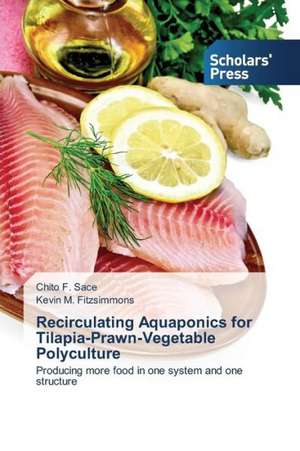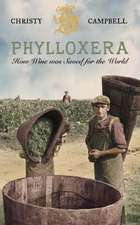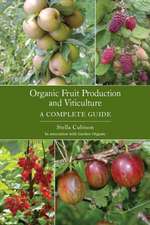Recirculating Aquaponics for Tilapia-Prawn-Vegetable Polyculture
Autor Chito F. Sace, Kevin M. Fitzsimmonsen Limba Engleză Paperback – 27 ian 2014
Preț: 406.21 lei
Preț vechi: 477.90 lei
-15% Nou
Puncte Express: 609
Preț estimativ în valută:
77.73€ • 81.37$ • 64.31£
77.73€ • 81.37$ • 64.31£
Carte tipărită la comandă
Livrare economică 03-09 aprilie
Preluare comenzi: 021 569.72.76
Specificații
ISBN-13: 9783639707182
ISBN-10: 3639707184
Pagini: 168
Dimensiuni: 152 x 229 x 11 mm
Greutate: 0.29 kg
Editura: Scholars' Press
ISBN-10: 3639707184
Pagini: 168
Dimensiuni: 152 x 229 x 11 mm
Greutate: 0.29 kg
Editura: Scholars' Press
Notă biografică
Associate professor, Institute for Climate Change and Environmental Management, Central Luzon State University, Philippines; BS (1982), MS (1996) and PhD (2008) in Agricultural Engineering; postdoctoral fellow, the University of Arizona, USA (2012) under Fulbright scholarship with research aquaponic tilapia-prawn-vegetables polyculture








